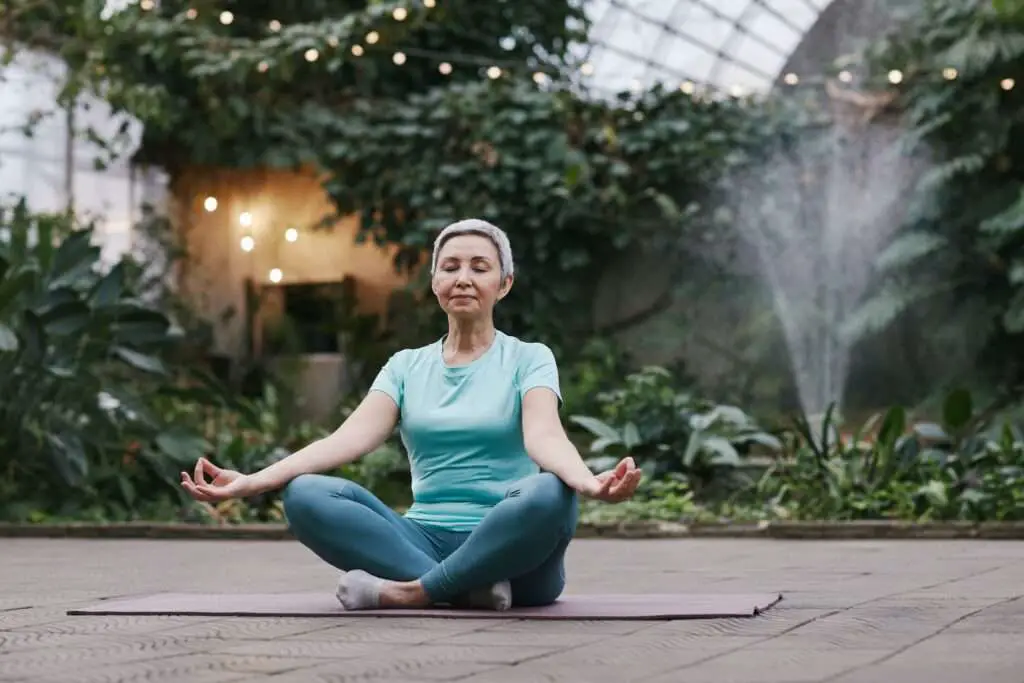How to Sleep in 2 Minutes: A Quick Guide to Falling Asleep Fast
Sleep is an essential part of our lives, crucial in maintaining our overall health and well-being. However, quickly falling asleep can sometimes be challenging, wildly when tossing and turning for hours. If you’re struggling with sleeplessness and wondering how to sleep in 2 minutes, you’ve come to the right place. This article will explore practical techniques and strategies to help you relax your mind and body, allowing you to fall asleep faster and wake up refreshed.14.

14. Understanding the Importance of Quality Sleep
Quality sleep is vital for overall well-being. It affects physical health, cognitive function, and emotional balance. When prioritizing quality sleep, we enhance productivity, memory, and immune system function. It’s essential to recognize the significance of sleep and take steps to improve its quality. By understanding the impact of sleep on our lives, we can make better choices to ensure restful nights. Creating a comfortable sleep environment, practicing relaxation techniques, and maintaining a consistent sleep schedule are vital factors in achieving quality sleep. Prioritizing sleep is essential for optimal health and functioning.
13. The Science Behind Falling Asleep
Falling asleep involves a complex scientific process. It consists of non-rapid eye movement (NREM) sleep and rapid eye movement (REM) sleep. NREM sleep has different stages, each serving a unique purpose in restoring and repairing the body. During REM sleep, dreaming occurs. The process of falling asleep is regulated by neurotransmitters, hormones, and the body’s internal clock. Understanding the science behind sleep can help us identify factors that affect our ability to fall asleep quickly. By optimizing our sleep environment and implementing relaxation techniques, we can facilitate the transition into sleep and improve our overall sleep quality.
12. Creating the Perfect Sleep Environment
Creating an ideal sleep environment is paramount for achieving the remarkable ability to fall asleep quickly. Curating a serene and optimal setting sets the stage for deep relaxation and an expedited path to slumber.
First and foremost, ensure that your bedroom offers a tranquil atmosphere. Minimize external disturbances by keeping the space quiet and free from disruptive noises. Consider using white noise machines or earplugs to mask any unwanted sounds that may interfere with your sleep. This allows your mind to drift off into tranquility without being disturbed by external factors.
A dark environment is also crucial in facilitating a swift onset of sleep. Invest in blackout curtains or use an eye mask to block out intrusive light sources, as even small amounts of light can disrupt your sleep patterns. Creating a pitch-dark environment promotes the release of melatonin, a hormone that aids in the sleep-wake cycle, helping you fall asleep more rapidly.
Temperature and comfort are equally essential elements in optimizing your sleep environment. Ensure your bedroom is set at a comfortable temperature, neither too warm nor too cold, as extreme temperatures can impede your ability to fall asleep swiftly. Invest in a supportive mattress, cozy pillows, and breathable bedding that cater to your personal comfort preferences. Creating a physically comfortable space enhances your body’s readiness for relaxation and sleep.
Electronic devices, particularly those emitting blue light, can disrupt sleep patterns. Remove or minimize these devices from your bedroom, as they can interfere with your natural sleep-wake cycle. Instead, embrace calming activities, such as reading a book or practicing relaxation techniques, to prepare your mind and body for sleep.
By optimizing your sleep environment to be quiet, dark, and at a comfortable temperature, you create a haven of tranquility that promotes deep relaxation. This inviting atmosphere sets the stage for a quick and effortless transition into sleep, allowing you to fall asleep within two minutes. Embrace the power of your sleep environment, and unlock the potential for a rejuvenating and restful night’s sleep.
11. Practicing Relaxation Techniques
Practicing relaxation techniques before bed can significantly enhance your ability to drift off into a restful slumber quickly. Several effective methods can relax your mind and body, including deep breathing exercises, progressive muscle relaxation, and guided imagery.
To begin, focus your attention on your breath. Take slow, deep breaths through your nose, allowing the air to fill your lungs, and then exhale gently through your mouth. This simple yet powerful breathing technique helps calm your nervous system, preparing your body for a peaceful night’s sleep.
Progressive muscle relaxation is another helpful technique. Start by tensing and then releasing each muscle group, beginning from your toes and gradually moving to your head. This systematic approach allows you to remove any built-up muscle tension, promoting physical and mental relaxation.
Additionally, incorporating guided imagery into your bedtime routine can create a serene and tranquil mental space, aiding in your journey toward sleep. Visualize peaceful scenes or imagine yourself in a calming environment, such as a soothing beach or a serene forest. This technique helps shift your focus away from the day’s stresses, allowing your mind to enter a state of tranquility.
Integrating these relaxation techniques into your nightly routine can effectively reduce stress and promote deep relaxation, facilitating a faster onset of sleep. You may doze off effortlessly within two minutes with consistent practice, embracing a rejuvenating night’s rest.
10. Mastering the 4-7-8 Breathing Method
Mastering the 4-7-8 breathing method can be a powerful tool to induce sleep quickly. To begin, find a comfortable position, whether sitting or lying down. Close your eyes and initiate the process by taking a deep breath through your nose, allowing the air to fill your lungs, and count silently to four. Hold your breath for a steady count of seven, allowing your body to embrace the stillness. Finally, release your breath slowly and gently through your mouth, counting to eight, emptying your lungs. Repeat this rhythmic cycle several times, focusing on the sensation of your breath and the precise counts.
By engaging in the 4-7-8 breathing method, you actively regulate your heart rate, promoting a state of calmness and tranquility within your body. This deliberate control over your breath helps relax your muscles, dissipating any tension or stress. Simultaneously, the technique encourages a serene mental state, quieting the constant chatter of your thoughts and cultivating a peaceful mindset.
Consistency in practicing the 4-7-8 breathing method is vital to reaping its benefits. Incorporating this technique into your nightly routine can enhance your ability to fall asleep swiftly. Over time, as you become more proficient, you may find yourself drifting off to sleep effortlessly within a mere two minutes, ushering in a deep and refreshing slumber.
Remember, the 4-7-8 breathing method is a simple yet potent tool that can be easily integrated into your bedtime ritual. By embracing this practice, you pave the way for a tranquil and rejuvenating sleep experience, allowing you to awaken refreshed and ready to embrace the day ahead.
9. Following a Consistent Sleep Schedule
Maintaining a consistent sleep schedule is pivotal in achieving the remarkable feat of falling asleep within just two minutes. Establishing regular bedtime and wake-up times, even on weekends, is crucial in synchronizing your body’s internal clock and cultivating a consistent sleep-wake cycle.
Adhering to a set routine empowers your body to anticipate and prepare for sleep at the designated bedtime. This consistency enables your biological clock to function optimally, promoting a smoother transition into slumber and helping you awaken naturally and refreshed in the morning.
Crafting a soothing bedtime routine further enhances your ability to fall asleep swiftly. Engage in activities that relax your mind and body, such as reading a book, taking a warm bath, or practicing gentle stretching exercises. By creating a tranquil atmosphere and engaging in calming activities, you signal to your body that it’s time to unwind and prepare for restful sleep.
It is advisable to steer clear of stimulants before bedtime to facilitate a quick and efficient transition into slumber. Avoid consuming caffeinated beverages or indulging in electronic devices that emit blue light, as they can disrupt your natural sleep patterns. Instead, embrace activities that promote relaxation, such as listening to soft music, practicing meditation, or engaging in light stretching.
Adhering to a consistent sleep schedule and embracing a relaxing bedtime routine gives your body the necessary cues to wind down and prepare for restorative sleep. Over time, your body will adapt to this predictable pattern, making it easier to swiftly drift off into a peaceful slumber, awakening each morning feeling rejuvenated and ready to embark on a new day.
8. Limiting Stimulants and Electronic Devices
To achieve the remarkable ability to fall asleep within a mere two minutes, limiting stimulants and electronic device usage before bed is crucial. Avoiding certain substances and minimizing exposure to electronic screens creates an environment conducive to relaxation and promotes a faster onset of sleep.
Caffeine, commonly found in coffee, tea, and energy drinks, is a stimulant that can interfere with your ability to unwind and relax. It is advisable to avoid consuming these beverages in the evening or at least several hours before bedtime. Reducing or eliminating caffeine intake allows your body to wind down naturally, facilitating a quicker transition into sleep.
Electronic devices like smartphones, tablets, and computers emit blue light that can disrupt your body’s natural sleep-wake cycle. The exposure to blue light in the evening can suppress the production of melatonin, a hormone that regulates sleep. To promote better sleep and facilitate a faster onset of sleep, minimizing or eliminating electronic device usage at least an hour before bedtime is recommended. Instead, engage in calming activities that prepare your mind and body for rest, such as reading a book, taking a hot bath, or practicing relaxation techniques like deep breathing or meditation.
Reducing stimulants like caffeine and limiting exposure to electronic devices creates a soothing and tranquil environment that promotes relaxation and a more efficient transition into sleep. Establishing a bedtime routine centered around calming activities sets the stage for a relaxing sleep experience and contributes to falling asleep more rapidly.
Remember, creating a conducive environment for sleep involves making intentional choices to support relaxation. By adopting these habits and prioritizing healthy sleep practices, you can optimize your sleep quality and achieve the remarkable ability to fall asleep within two minutes.
7. Embracing Natural Remedies
Incorporating natural remedies into your bedtime routine can be beneficial for achieving the impressive ability to fall asleep in just two minutes. These remedies offer gentle and soothing alternatives that promote relaxation and prepare your mind and body for a restful slumber.
One popular natural remedy is herbal tea, with chamomile being a well-known option. Chamomile tea possesses calming properties that can help ease tension and induce a sense of tranquility. Sipping on a warm cup of chamomile tea before bed can create a comforting ritual that aids in relaxation, setting the stage for a quicker transition into sleep.
Aromatherapy is another effective natural remedy to consider. Essential oils, such as lavender, have been recognized for promoting relaxation. Inhaling the scent of lavender directly or using a diffuser to disperse the aroma throughout your bedroom can create a soothing environment that encourages a faster onset of sleep. Experimenting with different essential oils and finding the scents that resonate with you can enhance their effectiveness.
Practicing mindfulness meditation or engaging in gentle yoga exercises before bed can also be valuable in preparing your mind and body for sleep. These practices promote relaxation, relieve stress, and help quiet the mind, making it easier to transition into deep restfulness. Incorporating these calming activities into your bedtime routine establishes a ritual that signals your body to wind down, fostering a more efficient and rapid path to sleep.
It’s important to note that the effectiveness of natural remedies may vary from person to person. Each individual may respond differently, so it’s recommended to experiment and find what works best for you. Pay attention to your body’s response and adjust your routine to optimize your sleep experience.
By embracing natural remedies such as herbal tea, aromatherapy, mindfulness meditation, or gentle yoga, you can enhance your ability to fall asleep within two minutes. These soft and holistic approaches contribute to a relaxed and tranquil state of mind and body, facilitating a faster onset of sleep and allowing you to awaken feeling refreshed and rejuvenated each morning.
6. Incorporating Exercise into Your Routine
Integrating exercise into your daily routine can be a valuable practice for achieving the remarkable ability to fall asleep within just two minutes. Regular physical activity, particularly moderate-intensity exercise, offers numerous benefits for sleep, including enhanced sleep quality and a more effortless transition into slumber.
Regular exercise promotes better sleep overall, contributing to improved sleep efficiency and a deeper state of restfulness. Aim for at least 30 minutes of exercise on most days of the week to maximize the sleep-related benefits. Incorporating physical activity into your routine, you help regulate your body’s internal clock and establish a healthy sleep-wake cycle.
However, it’s essential to consider the timing of your exercise. To optimize your sleep, avoiding vigorous exercise too close to bedtime is recommended, as it may stimulate your body and increase alertness, making it more challenging to fall asleep quickly. Instead, aim to complete your workout earlier in the day, allowing your body sufficient time to wind down and transition into a state of relaxation before bedtime.
By engaging in regular exercise, you not only promote physical health but also support your sleep hygiene. Exercise helps reduce stress, anxiety, and restlessness, enabling you to attain a more peaceful and relaxed state of mind that facilitates faster sleep onset. Additionally, the physical fatigue induced by exercise can contribute to a greater sense of tiredness, making it easier to fall asleep quickly.
Incorporating exercise into your routine can be a powerful tool in improving sleep efficiency and promoting a faster sleep onset. Remember to find activities that you enjoy and that align with your fitness level and preferences. By making exercise a regular part of your life, you can optimize your sleep quality and awaken feeling refreshed and rejuvenated each morning.
5. Avoiding Heavy Meals and Caffeine Before Bed
Avoiding heavy meals and caffeine before bed is crucial for falling asleep in 2 minutes. Eating a heavy meal close to bedtime can lead to discomfort and indigestion, making it difficult to relax and fall asleep. Instead, opt for lighter, easily digestible meals in the evening. Additionally, avoiding caffeine in coffee, tea, chocolate, and some sodas is essential, as it stimulates the central nervous system and can disrupt sleep. Aim to prevent consumption caffeine several hours before bed to allow your body enough time to metabolize it. Avoiding heavy meals and caffeine before bed creates a more restful sleep and quicker sleep onset.
4. Managing Stress and Anxiety
Managing stress and anxiety is essential for falling asleep in 2 minutes. High stress and anxiety levels can interfere with relaxing and sleeping. To manage stress, incorporate stress-reducing activities into your daily routine, such as meditation, deep breathing exercises, or engaging in hobbies you enjoy. Practice relaxation techniques before bed to calm your mind and body. Journaling or creating a to-do list can alleviate racing thoughts. Creating a peaceful bedtime routine can signal your body that it’s time to unwind and release stress. By managing stress and anxiety effectively, you can promote a more tranquil state of mind and achieve quicker sleep onset.
3. Seeking Professional Help for Chronic Insomnia
Seeking professional help is crucial for individuals experiencing chronic insomnia and aiming to fall asleep in 2 minutes. Chronic insomnia refers to ongoing sleep difficulties that last for an extended period. Consulting a healthcare provider or sleep specialist is recommended if you have tried various techniques and strategies but have yet to succeed. They can assess your situation, identify underlying causes, and provide tailored treatment options. This may involve cognitive-behavioral therapy for insomnia (CBT-I), medications, or a combination of approaches. Professional guidance can address underlying issues and develop a personalized plan to improve sleep quality and achieve faster sleep onset.
2. The Benefits of Power Napping
The benefits of power napping can contribute to falling asleep in 2 minutes. Power naps, short periods of sleep lasting around 20-30 minutes, can boost energy levels and enhance overall alertness. A power nap can help alleviate fatigue, improve cognitive function, and increase productivity. It allows the brain to rest and recharge, improving focus and concentration. However, keeping power naps short is essential to avoid disrupting nighttime sleep. Incorporating a power nap into your daily routine, when needed, can provide a quick rejuvenating boost and help you feel refreshed and ready to tackle the rest of the day.
1. Exploring Sleep-Inducing Supplements
Exploring sleep-inducing supplements can be beneficial for falling asleep in 2 minutes. Certain supplements are known for their calming and sleep-promoting effects. Melatonin, a hormone that regulates sleep-wake cycles, is commonly used to improve sleep quality. Magnesium supplements can also help relax the body and promote sleep. Herbal extracts like passionflower and valerian root have been used for centuries as natural sleep aids. However, consulting with a healthcare professional before starting any supplement regimen is essential, as they can guide proper dosages and potential interactions. Exploring sleep-inducing supplements under professional supervision can enhance your sleep routine and support quicker sleep onset.
Incorporating these techniques and strategies into your nightly routine can significantly improve your ability to fall asleep in 2 minutes or less. Remember that sleep is vital to your overall well-being, and prioritizing quality sleep can positively impact various areas of your life.
FAQs
Is it possible to fall asleep in just 2 minutes? While it may not be possible for everyone to fall asleep in precisely 2 minutes, the techniques mentioned in this article can help you relax and improve your sleep onset time.
How long does it take for the 4-7-8 breathing method to work? The 4-7-8 breathing method promotes relaxation and can have an immediate calming effect. However, it may take practice to experience its benefits fully.
Are natural remedies effective for improving sleep quality? Natural remedies can help promote better sleep. However, their effectiveness may vary from person to person. Finding the best treatments for you through experimentation and consultation with a healthcare professional is essential.
Can exercise help with falling asleep faster? Yes, regular exercise can contribute to better sleep. Engaging in moderate-intensity activity earlier in the day can help regulate your sleep patterns and make it easier to fall asleep at night.
When should I seek professional help for my sleep troubles? If you consistently struggle with falling asleep and experience chronic insomnia, it’s advisable to seek professional help. A healthcare provider or sleep specialist can assess your situation and provide appropriate guidance and treatment options.



